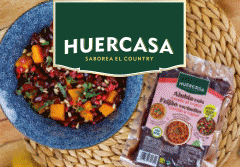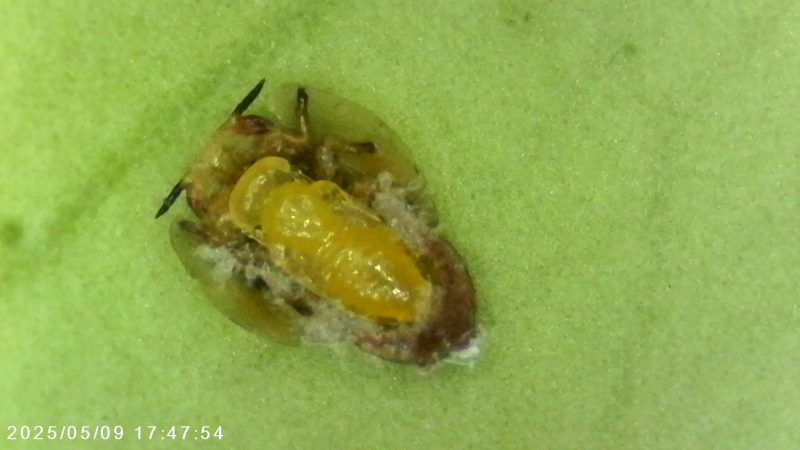Researchers have identified in Cyprus a new parasitoid species, Tamarixia citrícola, spontaneously parasitizing D. citri.
On the island, an unexpected ally has been found in the fight against the Asian citrus psyllid Diaphorina citri, the main vector of Huanglongbing (HLB), the most destructive citrus disease.
Since the detection of this insect vector in 2023, IVIA has promoted an ambitious classical biological control program together with the Cypriot Ministry of Agriculture, the Cyprus University of Technology and international partners. In this program, the parasitoid Tamarixia radiata was released. In just two years, scientific missions carried out by IVIA have confirmed the establishment of T. radiata (the introduced parasitoid) and, surprisingly, the discovery of a new native species with a high parasitism capacity.
Genetic and morphological analyses have confirmed that it is a new species for science and, thanks to the international collaborations of this IVIA-led project, it has been taxonomically classified under the name Tamarixia citrícola. This new parasitoid has spread naturally across the island, significantly reducing populations of the HLB vector. Thanks to its action, D. citri populations in summer have been very low, and further evaluations in autumn are expected to confirm these promising results.
RELATED NEWS: Climate puts Spanish citrus under pressure
The discovery consolidates IVIA as an international benchmark in plant health and biological control in citrus, and demonstrates the effectiveness of scientific cooperation to protect Mediterranean citriculture against emerging threats.
In addition to leading this program, IVIA has provided technical advice, training for farmers and authorities, and led the field campaigns that have made this breakthrough possible.




















